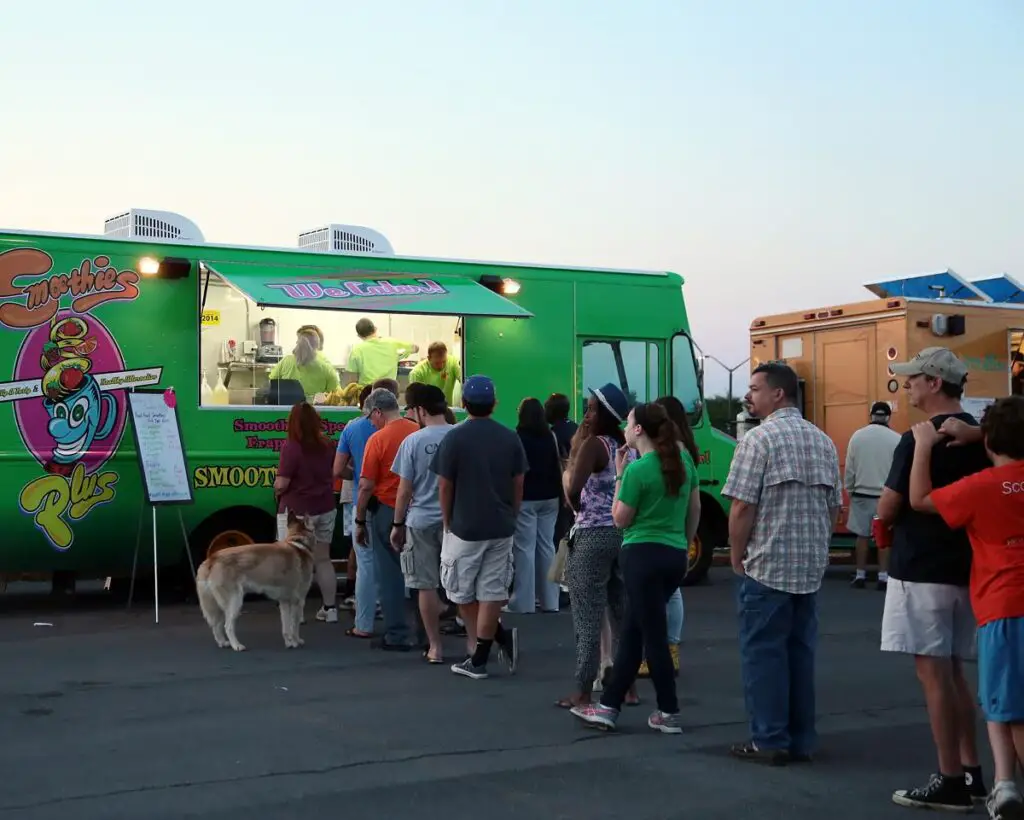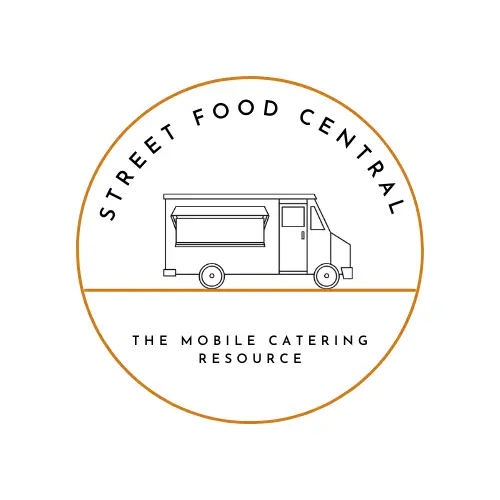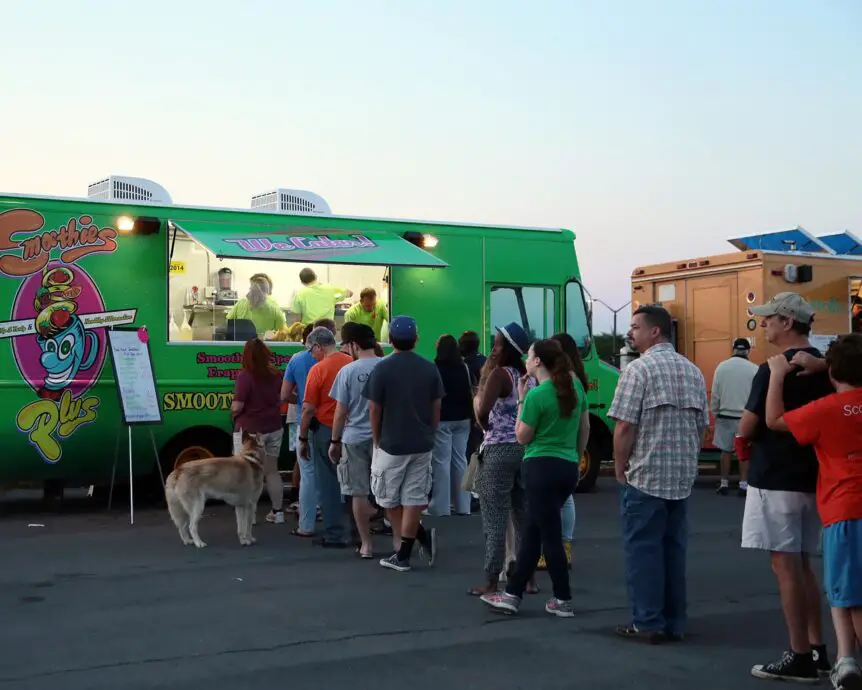A guide to the different ways food trucks pay to park at events

Food trucks are everywhere nowadays in all sorts of places.
From music festivals and street food markets to business districts serving hungry office workers and many other types of events in between.
So if you have landed on this article you may be wondering how much food trucks actually pay to park at these events.
There are different ways food trucks pay to park at events, such as a percentage of food sales, a fixed flat fee on a daily, weekly, or monthly basis, or even a donation to charity.
There are also a few other ways food trucks pay to park at events (keep reading).
However, how much food trucks pay very much depends on the type of event, what products are being sold, and the length of trading hours.
In this article, I will discuss the different ways event organizers use to charge food trucks to park and the factors that influence the payment type.
Different ways food trucks pay to park
There is no one fixed way food trucks pay to park or to be at an event, but rather a range of payment models or even a combination.
Ultimately, how much you pay to park at an event will be 100% decided by the organizer. Usually, this is them trying to make as much money as possible, although some companies have different methods from others.
Put simply, there is more than one way to skin a cat, and in this case – earn money from food events.
Fixed fee
A fixed fee is a set price agreed upon for the day or for the whole event if it is more than one day.
The fee will very much depend on the type of event and the overheads of the event organizers. In the US, this can be anything from $400 to $1000 depending on the scale of the event.
How much a food truck pays also depends on what type of product they sell. For example, is it hot or cold food or just drinks?
Percentage of sales
This is where food truck vendors pay a fixed percentage of all sales for the duration of the event.
This could be charged per day or a total amount across the whole event (if the event is over 2-3 days).
The percentage for this type of payment structure is usually around 10-15% of sales.
In this case, the food truck vendor has to make sure they are using a reliable payment system (especially when dealing with cash).
This is in order to calculate the correct fee for the event organizer at the end of the day/event. As a result of tracking issues, this way of payment is less common.
Percentage of sales + Fixed fees
Some event organizers will charge food trucks to park at their events a fixed fee plus a percentage of sales.
Again their percentage is typically around 10-15% of sales with a fixed flat fee.
The flat fee tends to be different across events as it will be different event organizers making decisions based on their own specific overheads.
Weekly/monthly fee
This payment structure is more for food trucks that park on a long-term basis in say a business district or on private land.
Again what event organizers or landlords will charge will very much depend on specific circumstances.
if you are an event organizer and are trying to work out how much to charge a food truck to park a good way is to check what your local authority is changing food trucks to park on public land.
This information should be publicly available and will give you a benchmark when making a calculation.
Related articles:
Donate a percentage to charity
Some event organizers will ask food truck traders to donate a percentage of their sales to a charity or good cause.
This type of model is often used for fundraising events and some sporting events and is the same model as a percentage of sales.
Feed the crew
Large events will have a lot of staff and people behind the scenes who have helped put it all together.
Therefore, Some food trucks will operate at these events on the basis of them feeding a set number, or the whole crew as payment to park at the event.
The company pays the food truck
Corporate and private events are becoming big business and an ever-increasing segment of the food truck industry.
When it comes to these types of events, the organizer or event planner will contact the food truck directly through their website or social media channels
A company will usually pay per head based on the number of guests at the event. For example, if a medium-sized company wanted you to attend a promotional event of theirs, they may pay you $300 for just showing up, and then another $12 for every person who attends the event.
When operating in this way, it is always recommended that you get a deposit for showing up so that you don’t waste your own time if the event fails. There should be some sort of guaranteed income for your time, given by the private company.
Power requirements
A lot of food trucks use electricity to cook their food by using their own generator or one that is provided by the event organizer.
If it is provided by the organizer then there will often be an additional fee to use the power.
This is to cover the overheads for the organizers as they would have to hire generators.
Related articles:
Different types of events
Not all events are created equally in terms of their size, the number of people who attend, and ultimately what food trucks pay to serve their food.
For example, mobile caterers tend to pay more to park at festivals because there is high volume traffic (people), they have longer trading hours, and have what is known as a “captive audience”.
On the other hand, organizers will often charge less for a one-day street food market, where footfall may be less with shorter trading hours.
Festivals
3-4 day events with high volume footfall, captive markets, and long trading hours.
Pricing models:
– Fixed Fee
– Percentage of sales
– Percentage of sales + fixed fee
Street food markets
1 or 2-day food markets where footfall may be less and with shorter trading hours.
There are also street food markets that operate 4-7 days per week as the industry is growing
Pricing models:
– Fixed daily/weekly/monthly fee
Business districts
Usually between Monday to Friday during the lunchtime period of 12-2 pm.
These have very short trading hours and there may be competition in the area with other brick-and-mortar food retailers.
Pricing models:
– Fixed fee
Corporate events
Event organizers tend to contact food truck vendors directly through their business website or other social media channels to attend their event.
Pricing models:
– Event organizer pays for food truck
Public land
This is a piece of land owned by the state or local authority.
Information will usually be on their website where food trucks can park and how much they charge.
Pricing models:
– Fixed weekly or monthly fee
Related articles:
Other factors that determine food truck fees
Aside from the type of events that influence food truck parking prices, there will be a few other factors.
Different trading Hours
How long food trucks have to serve customers should play a role in how much they pay to park.
For example, it’s logical to expect a food truck to make fewer sales over a 5-6 hour period than it would over 14 hours (street food market vs festival).
Different types of traders
The type of food or drink products a food truck sells will also influence how much they pay in pitch fees to park.
So, for example, a food truck selling cold products such as smoothies or ice cream would expect to pay less than a truck selling hot food like buyers or hotdogs.
This is because the price per unit for a smoothie is much lower than that of a burger.
This means food trucks that sell cold products have to sell double the amount in the same time frame to cover costs.
Final thoughts
How much food trucks pay to park at events is not an exact science and often comes down to specific circumstances. Hence it is very difficult to give specific examples.
Things such as the overheads of the event organizer, the size of the event, what products are being sold and the length of the trading hours will all determine how much is paid.
If you are a food truck business owner always try and negotiate the price with the event organizer.
Lastly, you should always take each event as it’s own individual entity. Even though an event charges significantly more than others, it may also be hugely more profitable than a cheap event which only costs you $100 to attend.
Ultimately, your profit is going to matter on how many customers pay you, minus your overheads. If there are no customers to give you money, it doesn’t matter how cheap the event was to attend.
And if you are an event organizer yourself make sure what you charge works for both of you.
Gavin D is the founder of Street Food Central and Tru Foo Juice Bar Co. and has worked in the mobile catering industry for over 7 years.

